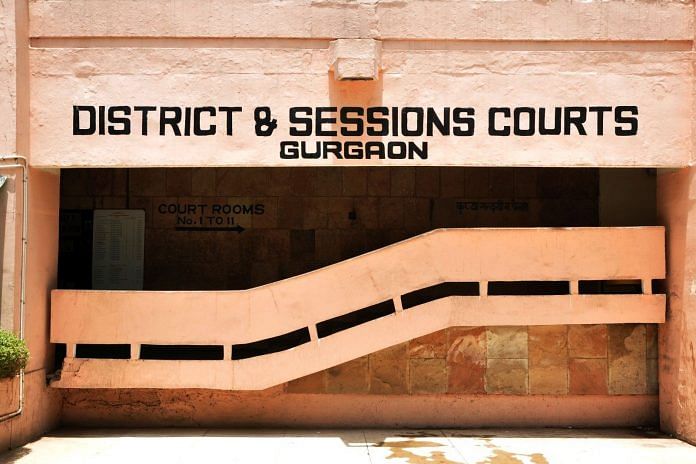In cases like the one at Ryan International School, for the rule of law to be upheld, it is essential that the right to counsel is zealously protected.
Following the murder of seven-year-old Pradyuman in Ryan International School, the Bar Associations of Gurugram and Sohna adopted resolutions that their members will not represent the accused in the case.
Francis Thomas, one of the persons arrested in the case, moved the Supreme Court seeking a transfer of the case from Sohna to Delhi or any other state. He argued that the accused in the case stand unrepresented since local lawyers refused to represent them, and are preventing lawyers from outside the district from appearing in court.
This case becomes another in a series of high-profile cases, where the local Bar has refused to represent the accused in court. Previous notable instances have been the 16 December, 2012 fatal gangrape in Delhi, and Ajmal Kasab’s trial in Mumbai.
In the former, a transfer petition was filed in the Supreme Court seeking the case be transferred out of Delhi. It was rejected on technical grounds – the apex court did not go into merits of the argument. In the Ryan school case too, the court did not transfer the case since the two Bar Associations had withdrawn their respective resolutions. The court has directed the two associations to ensure they do not obstruct counsel representing the accused persons.
Such resolutions violate the rights of both the accused and victims of crime. They are not only unethical, but violate the fundamental rights of the accused to a fair trial, and hence constitute a fit ground for transfer. They also adversely impact the rights and interest of victims and witnesses.
Section 406 of the Code of Criminal Procedure, 1973 (Cr.P.C.) empowers the Supreme Court to transfer a criminal case from one court to another if it determines that the accused may not get a fair trial in the court where his/her case is being tried.
Note that Article 21 of the Constitution of India provides the right to a fair trial to every person being tried for a criminal offence. The Supreme Court has ruled in multiple cases that the power under Section 406 should be exercised sparingly.
Situations where the power has been exercised include the Best Bakery case, which was transferred out of Gujarat since witnesses/victims argued that they were being threatened. It was also done in the Jayalalithaa and Sasikala disproportionate assets case, where the trial was transferred from Tamil Nadu to Karnataka, because of an apprehension of bias in favour of the accused in Tamil Nadu.
The Supreme Court has ruled that the following factors should also be considered in determining whether a case should be transferred or not: first, where it appears that state agencies are hand-in-glove with the accused or have a lackadaisical approach towards prosecuting the case.
Second, where there is evidence to show that the accused may intimidate/influence witnesses or harm the victim.
Third, a communally charged atmosphere indicating that it will not be possible to conduct a fair and impartial trial because of the nature of crime allegedly committed by the accused.
Fourth, the existence of material to show that some persons are so hostile that they are interfering or likely to interfere in the trial process.
And fifth, the inconvenience that will be caused to victims and witnesses if the case is transferred to another state, as well as the cost that the state will have to incur in reimbursing witnesses for their travel etc.
Inconvenience caused to victims/witnesses is a major factor in the court’s decision-making. The rationale behind conducting trials within the jurisdiction of the place where the offence occurred is primarily for the convenience of the victims and witnesses. Victims can attend the trial and experience a sense of justice seeing the perpetrator being held accountable for his/her actions.
Hostility of Bar Associations towards the accused interfere with the trial process and make it impossible to conduct a fair and impartial trial. Hence, this should be a ground to transfer cases.
In a criminal trial, the accused person faces the might of the state machinery through its investigating and prosecuting agencies. In order to ensure a level-playing field, it is essential that the accused is represented by counsel, which is guaranteed by Article 22 of the Constitution.
In an adversarial system like ours, it is essential that procedural safeguards provided by the Constitution, the Criminal Procedure Code and the Indian Evidence Act are scrupulously followed. In the absence of defence counsel, the accused may not be aware of his/her rights, and evidence of a questionable nature may be introduced into the trial.
These are some of the reasons why the Supreme Court has consistently held that the right to legal representation is a core feature of a fair trial and in its absence the trial will stand vitiated. This is another ground to transfer the case out of a jurisdiction with a hostile Bar.
For the rule of law to be upheld, it is essential that the right to counsel is zealously protected.



